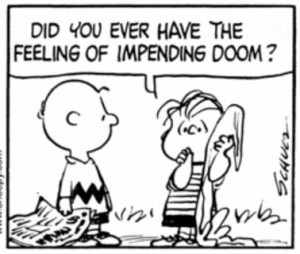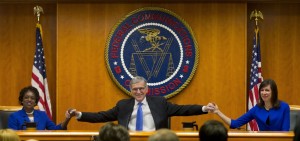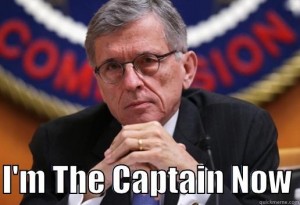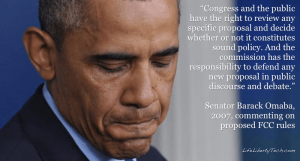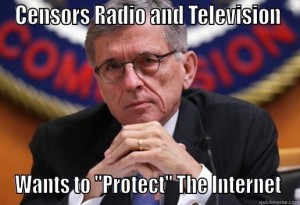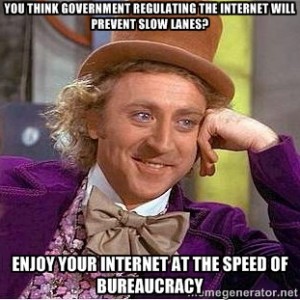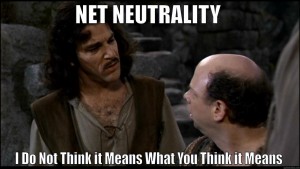 Yes, you read the title correctly. Contrary to what most people think, the surprising truth is that within the context of the seemingly endless gun control debate, the Second Amendment simply doesn’t matter. It has virtually no relevance and most people who base gun control discussions around the Second Amendment are wasting their time. The Second Amendment even has very little significance in any conversations about the right to bear arms. Does this sound crazy? Good. I’ve got your attention and now we can really get to the core of the gun control discussion.
Yes, you read the title correctly. Contrary to what most people think, the surprising truth is that within the context of the seemingly endless gun control debate, the Second Amendment simply doesn’t matter. It has virtually no relevance and most people who base gun control discussions around the Second Amendment are wasting their time. The Second Amendment even has very little significance in any conversations about the right to bear arms. Does this sound crazy? Good. I’ve got your attention and now we can really get to the core of the gun control discussion.
Many conversations around gun control completely miss (or ignore) some fundamental considerations regarding the concept of rights (including the right to bear arms) and the purpose and function of the Constitution. In reality I’m not surprised, as most people have no idea how the United States federal government is supposed to work. Nor do most people have a foundational understanding of their own rights and freedoms. I think it’s time to bring these considerations to the forefront because they are entirely relevant to so many other issues today beyond gun control.
What Exactly is the Second Amendment?
As I mentioned, most people frame the debate over gun control as a Second Amendment issue. Many who advocate for the right to bear arms call this a “Second Amendment right.” Others who support legal restrictions on private ownership of guns attempt to interpret the Second Amendment in a way that does not give individuals the right to bear arms. Regardless of their position, anyone who discusses the regulation of gun ownership in the context of the Second Amendment is fighting the wrong battle.
The fact is, while not exactly for the reasons they claim, people who assert the Second Amendment does not give us the right to bear arms are actually correct! The Second Amendment does not confer *any* rights whatsoever to anyone. People in support of private gun ownership are wrong to claim that the right to bear arms comes from the Second Amendment. So does this mean that the government can regulate gun ownership as it pleases? Not at all. This is because while the Second Amendment does not give us any rights, it does not mean those rights do not exist.
Given that most people are conditioned to regard the 2nd Amendment as the crux of the gun control debate, I’m guessing at this point you are a little confused. In order to understand the points I am about to make, let me start with a little history lesson. Our country as it exists today was founded on two documents: The Declaration of Independence and The Constitution of the United States of America.
On Rights and Government
The Declaration of Independence states, “We hold these truths to be self-evident, that all men are created equal, that they are endowed by their Creator with certain unalienable Rights, that among these are Life, Liberty and the pursuit of Happiness.” This now-famous statement forms the core of the American belief system:
- Every single individual is equal to all others, therefore no one person has authority over another.
- Our rights exist at the time of our birth; these rights are not granted to us by other people.
- Some of these rights (but not all of them) include our lives and the ability to protect it, plus our freedom to live our life the way we want.
I doubt I would find much argument on these concepts from anyone who believes in the American way of life. Yet I have found that many people do not fully understand the self-evident truth that rights are unalienable (or inalienable). This insight is absolutely crucial to a proper comprehension of how our government is supposed to function and what authority it has, if any, in the resolution of particular societal issues. The key concept to grasp about unalienable rights is that our rights do NOT come from other men or groups of men acting as a government. Our rights exist above and beyond the authority of government because they come from our creation. This is vitally important to understand because if we believe our rights come from other people, then we also believe our rights can be justifiably taken away by other people. In fact, if we believe our rights come from man, then in effect we believe they are not truly rights at all, but rather privileges.
This concept is immediately affirmed by the very next sentence in The Declaration of Independence. “That to secure these rights, Governments are instituted among Men, deriving their just powers from the consent of the governed …” This means that the purpose of government is to protect the rights of the people it governs. It does not say that the purpose of government is to create rights. It does not even say that the purpose of government is to govern rights. It says governments are instituted to secure rights. Additionally, the powers of government are only justified when it is granted by those who consent to be governed, which further bolsters the idea that the rights of the people are superior to any form of government.
The Declaration continues, “… That whenever any Form of Government becomes destructive of these ends, it is the Right of the People to alter or to abolish it …” In other words, when a government begins to infringe on the rights of those it governs, the people have the authority to change the government or even completely abolish it. This statement could not make it any more clear that the rights of free people are not subject to the authority of government. If government was the arbitrator of rights, it could simply restrict the right of people to change their own government. However, this right (as all rights) doesn’t come from other men or any government. It is an unalienable right (as all rights are) that exists because we exist. We don’t need permission from anyone to exercise our rights since we are all equal and posses our rights naturally – no man or group of men has the authority to deny our rights. We the people are the master of our government, not the other way around.
Rights and The Supreme Law of the Land
The Constitution of the United States of America was not our first supreme law of the land. That was the Articles of Confederation, as hopefully most of you know! Once the United States had secured their independence from the king and government of Great Britain, the founding fathers then set about creating a new set of laws that would “form a more perfect Union” and “secure the Blessings of Liberty to ourselves and our Posterity.” To be honest, the text of the Constitution beyond the preamble is pretty dry reading. It is not an inspirational document like The Declaration of Independence. Rather it is largely a rote definition of the internal processes of the federal government and its relationship to the independent states which it governs. Not until we get to the first ten amendments, known as the Bill of Rights, do we get back to the ideals that were first laid out in The Declaration.
Since many people have not studied the Constitution beyond the relatively boring mechanism of government they were taught in school, it should not be surprising that a lot of people believe the Bill of Rights are where our rights come from. However, as I explained in the previous section, The Declaration proclaims that our rights are natural. Our rights exist because we exist. They do not come from other men or groups of men acting as governments. So what is the point of the Bill of Rights if they don’t actually give us certain rights? Furthermore, if one thinks about it briefly, why wasn’t the Bill of Rights included in the original Constitution? Why did it need to be added during the ratification process and why did some people actually oppose the inclusion of the first ten amendments? Bear with me for a little more discussion of history and the Constitution.
If one reads Article I of the Constitution, Section 1 states that “All legislative Powers herein granted shall be vested in a Congress of the United States …” If we remember what The Declaration of Independence said, all just powers of government come from the consent of the governed. In other words, government can ONLY justifiably do what the people allow it to do. So Article I, Section 1 codifies this into law by stating that all regulatory (legislative) authority herein granted will be entrusted with the Congress. It does not say “all legislative powers” shall be vested, it states “all legislative Powers herein granted …” This implies that a listing of powers to be granted from the people is forthcoming and those will be the only limited and specific authorities government will posses. Continuing reading through Article I, the next several sections detail how Congress will function internally until we get to Article I, Section 8, which finally does state what the specific powers of Congress shall be. I won’t reprint the entire text of Article I, Section 8 here, but please do go and read it for yourself. While you read it, keep in mind what The Declaration of Independence said about the just powers of government coming from the consent of the governed, but also consider what the point of delineating a specific set of authorities would be. If the intent of the Constitution was to merely give Congress the power to pass any law it wanted, why not simply state that? Why list a particular set of powers “herein granted”?
The simple answer is that government arbitrarily taking more power for itself through legislation would be counter to the ideals of freedom and liberty the country was founded upon. Not only that, but if a government can simply grant itself more authority, then it essentially becomes a government of unlimited power and one that can easily oppress the rights of the people without accountability. In essence, government would have the power to vote away people’s rights, making the country a place where the powerful can rule over the less powerful, the majority could rule the minority, and tyranny would reign instead of freedom.
The Authority to Regulate Gun Ownership?
Now that you’ve read the text of Article I, Section 8, are you able to point out where the federal government is given the authority to regulate private ownership of anything, let alone guns? There is no mention of the word gun, weapon, arms, or ownership anywhere in the text of Article I, Section 8. So given the previous understanding of the ideals set forth by the Declaration of Independence and Article I, Section 1 of the Constitution, how can one justifiably argue that the federal government has any authority to regulate the right to bear arms?
Some people might argue that the “interstate commerce clause” allows the federal government to regulate the sale of guns. In theory, as long as lawmakers show any kind of correlation between an activity and interstate commerce, then they can claim authority to pass legislation regulating that activity. Similarly, others may argue that the “necessary and proper clause” also gives government the power to regulate the right the bear arms. As before, if lawmakers can figure out how to rationalize something into being “necessary and/or proper,” then they can justify taking the power to pass certain laws. The discussion over explicit vs implied authority in the Constitution is a long standing one and a full discussion of which would be well outside the scope of this article. If you want to read some more of my thoughts on this topic, I wrote an article that discusses how the abuse of the commerce clause in essence gives the federal government the power to regulate nearly anything it wants. However, to make a very simple analogy, consider the “Kevin Bacon game.” If you aren’t familiar with it, this is a simple party game where the players basically try to “link” actors to Kevin Bacon through the movies they appeared in. Ask anyone who has played the game and they’ll tell you that virtually every actor and actress in Hollywood can be linked to Kevin Bacon if you work at it hard enough. Similarly, crafty politicians can basically link anything to interstate commerce or deem it “necessary and proper” through questionable legal and mental gymnastics. The bottom line is that if you want to argue that the commerce or necessary and proper clauses give the federal government the power to regulate guns, then you are arguing that the federal government has the power to regulate everything and anything. This is certainly not what the founding fathers intended and it is likely not what you (or anyone who believes in freedom) would actually prefer to be true.
Again, the discussion of implied powers deserves its own space. But for purposes of this discussion if you would be willing to concede that the question of federal authority over the right to bear arms through the commerce or necessary and proper clauses is at least not clear-cut, we can continue. Stipulating this, there is literally nothing within Article I, Section 8 that gives the federal government the authority to regulate the private ownership of guns. Before you ask, there is no other section of the Constitution that gives regulatory authority to congress or any other branch of government, and no text within the Constitution or the amendments even mention the words gun, weapon, or arms (save for the Second Amendment). So with that in mind, consider the creation of the Bill of Rights and the process behind its ratification.
The Bill of Guarantees
Given the very limited set of powers defined in Article I, Section 8, the original framers of the Constitution saw no reason to include a listing of what rights were to be protected against government tyranny. How could a government lawfully infringe upon someone’s rights when they had no just power to do so? However, others saw it differently. They did not trust that the newly formed federal government would stay within their legal bounds and wanted further protection for their natural rights from the centralized power the Constitution would create. This idea seems fairly self-evident today, but there were actually people opposed to an enumeration of rights being listed in the Constitution. This wasn’t because they were opposed to protecting those rights, but rather because they thought that by listing certain rights, people would eventually believe that those were the only rights protected from government infringement. Additionally, they also felt that people would mistakenly be convinced that those rights were granted by government. In other words, they actually felt the Bill of Rights could be dangerous to our natural rights.
In an effort to satisfy the concern of those who thought this way, the Ninth Amendment specifically states, “The enumeration in the Constitution, of certain rights, shall not be construed to deny or disparage others retained by the people.” In other words, rights that are not listed do in fact exist and are also protected against government infringement. Furthermore, the Tenth Amendment declares that “The powers not delegated to the United States by the Constitution, nor prohibited by it to the States, are reserved to the States respectively, or to the people.” This amendment strongly reinforces the idea that the federal government is only a government of specific and limited powers. If a power is not granted to the federal government in the Constitution, this amendment states in no uncertain terms that the authority lies with the states or with the people. This is also further proof that the commerce clause as well as the necessary and proper clause were not intended to offer arbitrary implied powers to the federal government. Once again, what would be the point of having so many specific limitations on authority if the actual intent was to allow government to simply legislate itself more power any time it pleased?
Let’s bring this history lesson back full circle. It should be evident by now that the point of the Second Amendment was not to grant us the right to bear arms, but “merely” to be an additional protection against the government possibly infringing that right. It is an attempt at guaranteeing that this right would be free from government tyranny. In essence, it states that if a lawmaker were so inclined to ignore the fact that there is no authority in Article I, Section 8 for the federal government to regulate the private ownership of guns, the Second Amendment acts as another barrier to such oppression. To this end it would be more proper to call the Bill of Rights the “Bill of Guarantees” since that is a more concise description of its function.
It’s Not Really About Guns
So back to my original assertion, I contend that arguing about the Second Amendment is truly an exercise in futility. No matter how one feels about the interpretation of the Second Amendment, whatever conclusion one draws does not trump the fact that nothing in Article I, Section 8 grants the federal government the authority to regulate the private ownership of guns. The Second Amendment could vanish and the federal government would still not have the authority to regulate the right to bear arms. Even if one is to argue that implied powers does give the federal government the authority to regulate the right to bear arms, the discussion must begin in Article I, Section 8. Therefore, Article I, Section 8 should be the core of the discussion about gun control. The Second Amendment can rightly be thought of as window dressing in most gun control discussions.
To that end, the conversation about Article I, Section 8 and the rightful authority of government is about far more than gun ownership. In order to satisfy the ideal in The Declaration of Independence that governments derive their just power from the consent of the governed, we must ensure that any new law or regulation considered by our government is based upon powers that government has been lawfully granted. Yes, this includes gun control but truly any regulation should be subject to this same scrutiny. In this country, we can not legally pass a law that is outside the authority granted to congress by the Constitution. To do so is the very definition of unconstitutional. So even if a popular majority supported a particular form of gun control, short of the passage of a new Amendment, enacting such a law would be not only unconstitutional, but a violation of the principles this country was founded upon.
To ignore Article I, Section 8 is to ignore the spirit of limited government. It is to completely disregard The Declaration of Independence. It is to look right past the idea that we are born with natural unalienable rights and that government is created in order to secure those rights. It turns the concept of the government as the people’s servant on its head and instead allows government the power to make itself the master. The bottom line is that if we can rationalize the willful violation of a core ideal of liberty in the name of gun control, we can rationalize oppressing any and all of our freedoms for any purpose that is politically expedient.
The Second Amendment is irrelevant. Except when it isn’t.
With all that being said, I will now contradict the premise of my own article. While the Second Amendment is technically redundant and I’ve just argued that it truly does not matter in the context of the discussion of the right to bear arms, I am certainly glad that those who were ratifying the Constitution had enough foresight to include it along with the rest of the Bill of Rights. It has become clearly evident that our federal government has willfully ignored the limitations of power imposed on it by Article I, Section 8 of the Constitution. The additional safeguards that the Bill of Rights put in place may have been the only thing standing in the way of further government overreach. However, as we now see, even those safeguards are in danger of being overrun. It seems that hardly anyone is familiar with the Ninth or Tenth Amendments and the First and Second Amendments have been methodically worked around by ambitious politicians and government bureaucrats. We must work harder to demand that our elected officials abide by the supreme law of the land in order to draw down government abuse of power. While the Bill of Rights and the Second Amendment are intended to guarantee that certain rights be free from government infringement, if we continue to ignore the limitations that Article I, Section 8 imposes on the federal government it is only a matter of time before overzealous politicians figure out a way to completely override our most precious freedoms. We must focus on the root of the problem and rein in the unjust and unconstitutional power of government or else the Second Amendment and the rest of the Bill of Rights will truly become irrelevant.
